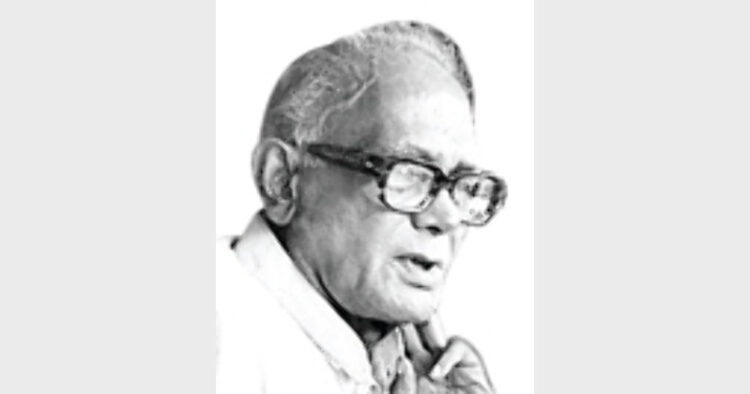Singhasan Khaali Karo Ki Janata Aati Hai
Intro : Children in the Struggle for Bharat’s Independence many people laid down their lives. But we are aware of only a few of them. History is the testimony of the contribution made by the countless people in making Bharat independent. One name that stands out is that of Jayaprakash Narayan.
Early Life
J ayaprakash Narayan was born on October 11, 1902 in Sitabadiara , Bihar. He completed his primary education in the village. When Narayan was nine, he left his village to enroll in 7th class of the collegiate school at Patna. While in school, Jayaprakash read magazines like Saraswati, Prabha and Pratap, books like Bharat Bharati, and poems by Maithilsharan Gupta and Bharatendu Harishchandra which described the courage and valour of the Rajput kings. Jayaprakash also read the Bhagvad Gita. His essay, ‘The present state of Hindi in Bihar’ won a best essay award. He excelled in school and by 1918 completed school and undertook the 'State Public Matriculation Examination' and won the District merit scholarship to Patna College.
In May 1922 he obtained a scholarship from an association in Calcutta to study in the United States. He did his Master’s degree from Ohio University. In Wisconsin, Jayaprakash was introduced to Karl Marx’s Das Kapital. News of the success of the Russian Revolution of 1917 made Jayaprakash conclude that Marxism was the way to alleviate the suffering of the masses.
Besides being active in politics and social activities he wrote a number of books and booklets, which concerned various aspects of Indian life and problems—political as well as economic and social.
|
Political career
In 1929 after his return to India Jai Prakash came in touch with Gandhiji. He was the true follower of Gandhian principles. People called him “King without crown”. He made up his mind to live and die for his country. The failure of the Gandhi-Irwin talks led to the Civil Disobedience movement and Jayaprakash readily joined it. He was arrested and put in the Nasik Jail. Here he met Achyut Patwardhan and Minoo Masani, who reinforced his Socialist leanings. Later, along with Acharya Narendra Dev, he organised the All India Congress Socialist Party, and in support of his cause, wrote in 1936 ‘Why Socialism’. Jayaprakash believed in non-violence. However, during the Quit India Movement he supported violent measures against British atrocities. In 1934 he became the Secretary of the Socialist Party.
|
Activity against corruption In 1974, he observed that there was corruption from top to bottom among the leaders of the Government. On 26 June 1975 he launched Bhrashtachar Mitao Andolan, a movement against corruption. To deal with the situation he advocated a programme of social transformation which he termed Sampoorna kranti. Jayaprakash Narayan attracted a gathering of 100,000 people at the Ramlila Grounds and thunderously recited Rashtrakavi Ramdhari Singh Dinkar's wonderfully evocative poetry: Singhasan Khaali Karo Ke Janata Aati Hai. Indira Gandhi proclaimed a national Emergency on the midnight of 25 June 1975. Narayan, Opposition leaders, and dissenting members of her own party (the 'Young Turks') were arrested that day. He came out of the jail with his frail health in 1976 to take part in the Elections.The great leaders of five opposition parties joined hands under the guidance of Shri Jayaprakash Narayan. They made a party calling it Janata Party to contest the election against the Congress Party and won the election. |
Jayaprakash Narayan was a selfless worker. Once Pandit Nehru offered him the post of a minister in the Union Cabinet. He refused it. Again when Nehru offered him the membership of Congress Working Committee in 1946 he rejected it. But when Nehru requested him second time, he joined it . In 1948 he, together with most of the Congress Socialists, left the Congress Party and in 1952 formed the Praja Socialist Party. Soon becoming dissatisfied with party politics, he announced in 1954 that he would henceforth devote his life exclusively to the Bhoodan Yojna Movement, founded by Vinoba Bhave, which demanded that land be distributed among the landless. His continuing interest in political problems, however, was revealed when in 1959 he argued for a “reconstruction of Indian polity” by means of a four-tier hierarchy of village, district, state, and union councils. — Aniket Raja














Comments